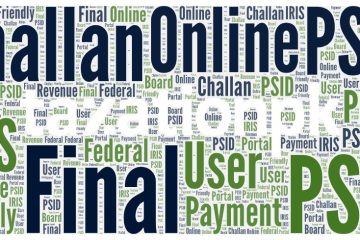Categories Targeted by FBR
FBR has primarily issued notices to three groups:
Table of Contents
Toggle- Return filers with no declared income: Taxpayers who filed returns but showed no income for 2024.
- Underreported income or tax: Tax department has definite information that the taxpayer owns more than they have reported e.g more than three vehicles, property owner, paying tuition fees to private institutes.
- Non-filers: Individuals or entities who failed to file tax returns.
Powers of FBR in Case of Non-Compliance
If a taxpayer fails to respond to notices or provides unsatisfactory responses, the FBR will issue orders based on the information available to them.
- Property Seizure
FBR can attach both movable (vehicles, jewelry, etc.) and immovable (real estate) properties.
Ownership rights are revoked, and the assets are forfeited to FBR for recovery purposes. - Bank Account Freezing
FBR can freeze the taxpayer’s bank accounts, rendering them inaccessible for transactions.
- Business Takeover
In the case of businesses, FBR may establish a management committee to seize and manage the operations.
- Imprisonment
Non-compliance can result in imprisonment for up to six months, especially in cases of deliberate evasion.
- Mandatory Payments for Appeals
To file an appeal at the High Court, taxpayers are required to deposit 30% of the disputed tax amount as a precondition. This deposit is non-refundable but adjustable against future tax liabilities.
Legal Path for Tax Disputes
If a taxpayer contests the notice:
- Appeal to Commissioner of Appeals
The initial appeal lies with the Commissioner of Appeals, typically within FBR.
Decisions often uphold the original order. - Appeal to the Appellate Tribunal (ATR)
Taxpayers can escalate the matter to ATR if dissatisfied with the Commissioner’s decision.
ATR decisions are final unless challenged in the High Court. - High Court Appeal
High Court intervention requires a 30% deposit of the disputed tax.
If this deposit is unpaid, the court will not grant a stay or hear the case.
Impact of FBR’s Recent Measures
- The FBR’s action plan includes issuing 5,000 notices, which may lead to mass enforcement.
- This approach is viewed as a method to meet tax collection targets but has raised concerns about misuse of authority.
Key Takeaways for Taxpayers
- Stay Proactive: File returns accurately and on time to avoid penalties.
- Maintain Records: Keep detailed records of financial transactions to substantiate your income and taxes.
- Seek Legal Advice: Engage a tax consultant or lawyer to navigate appeals effectively.
- Respond Promptly: Meet deadlines for payments or appeals to prevent escalation of penalties.
By understanding the gravity of non-compliance and the available remedies, taxpayers can better protect their assets and avoid unnecessary legal complications.







